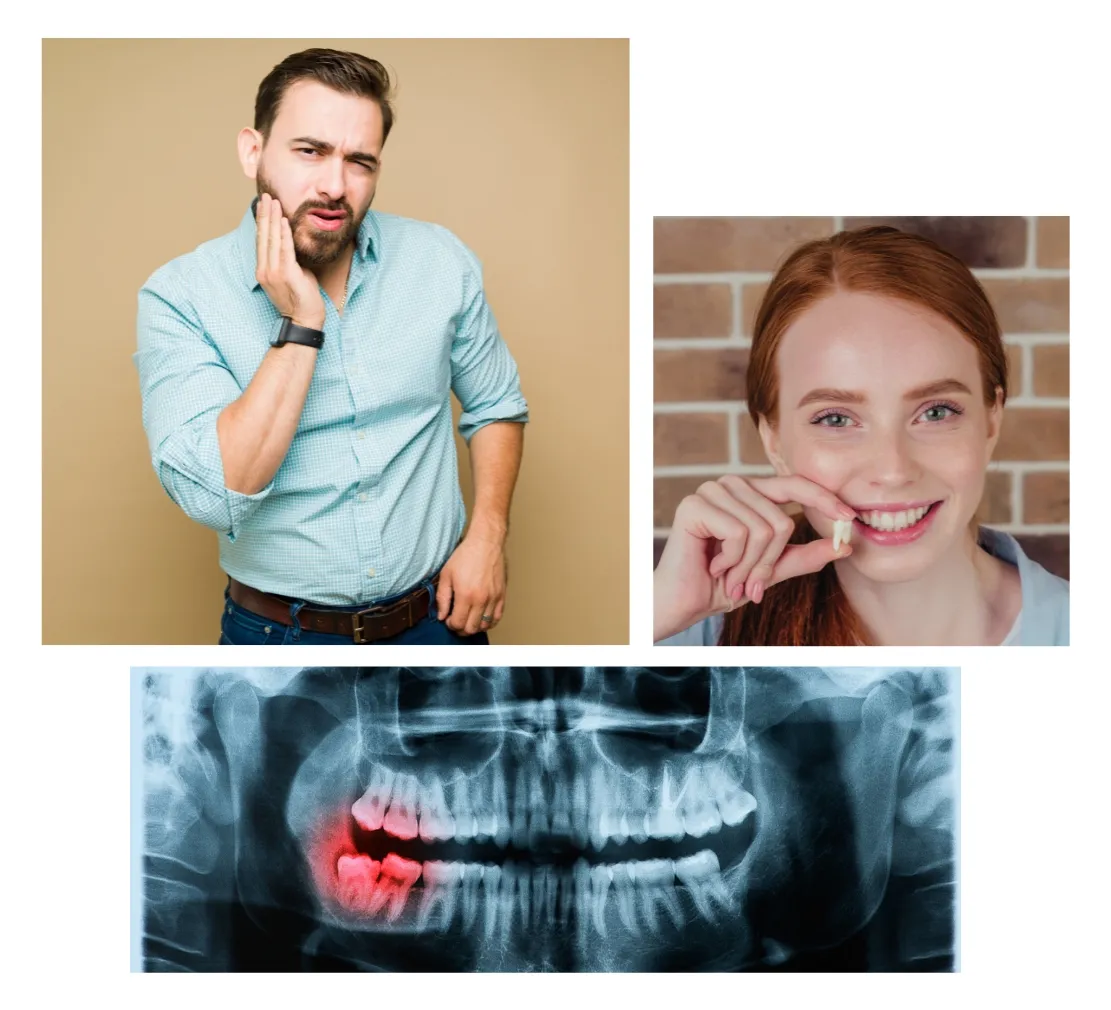
Wisdom tooth extraction is an important step in maintaining good oral health for many people. Although this procedure is common, it often raises doubts, worries, and many questions.
Why do these teeth need to be removed? How does the procedure work? What should you do to recover properly Understanding each stage helps you approach the experience with calm and confidence.
In this article, we explain in simple terms everything you need to know before, during, and after the extraction so you can prepare yourself and ensure a smooth, complication-free recovery.

Wisdom teeth are the third molars located at the very back of the mouth. They usually appear between the ages of 17 and 25. Some people never experience problems, while others may develop pain, infections, or alignment issues that make extraction necessary.

Extraction is often recommended in the following situations:
Your dentist will confirm the need for extraction through X-rays and a complete examination.
During the extraction, local anesthesia prevents any pain — you may feel some pressure but not actual pain.
After surgery, it is normal to experience some mild to moderate wisdom tooth pain, swelling around the surgery area, and temporary jaw tenderness. These symptoms can be managed with prescribed painkillers and proper post-operative care, ensuring a safe and comfortable recovery.
For the best pre-extraction care:
The process generally includes:
The procedure usually lasts between 20 and 60 minutes, depending on the complexity.
To promote quick healing after extraction:
Soft tissue healing typically takes 1 to 2 weeks, while full bone recovery may take several months.

Knowing what to eat after wisdom teeth extraction is essential for a quick and complication-free recovery. In the first few days, stick to soft foods such as soups, purées, yogurt, or applesauce.
Avoid hard, crunchy, spicy, or very hot foods, as they can irritate the extraction site or cause bleeding. Drink plenty of water, but avoid using straws to prevent dislodging the blood clot.
Gradually reintroduce solid foods as you feel comfortable and as advised by your dentist. Following these tips helps minimize pain and swelling while promoting proper healing.
Most patients can return to light daily activities after 1 or 2 days. Avoid strenuous exercise or sports for about a week to prevent complications. Always follow your dentist’s instructions for the best recovery outcome.
Contact your dentist if you notice:
These may be signs of infection or another complication that requires prompt attention.
Wisdom tooth extraction is a safe procedure when performed by experienced professionals. Understanding the process, following pre- and post-operative care, and monitoring any warning signs ensures a quick and complication-free recovery.
Book an appointment today at Centre Dentaire Fairmount for a consultation with our dentists and prepare for your extraction with confidence.
After the extraction, it’s best to sleep with your head slightly elevated using one or two pillows to reduce swelling. Avoid sleeping on the side of the extraction. During the first few nights, keep your head upright to promote healing and prevent bleeding.
You should wait a few hours after the procedure, once the anesthesia has completely worn off, before eating. Start with soft, cool foods such as yogurt or applesauce to avoid irritating the surgical site.
Stick to soft and easy-to-swallow meals like mashed potatoes, warm soup, omelets, or smoothies. Avoid hard, hot, spicy, or grainy foods for a few days. A gentle diet helps protect the extraction area and speeds up healing.
Some stitches dissolve on their own, while others need to be removed by your dentist. Your dental team will let you know which type you have and when to return for a follow-up.
No. Only the ones that cause problems or are likely to create future complications need to be removed. Regular check-ups help monitor their position and condition.
Even if there’s no pain, an impacted wisdom tooth can damage neighboring teeth or cause infection later on. Routine dental exams are key to early detection and prevention.

At our clinic, we are proud to be your one-stop destination for quality dental care. We are more than a dental clinic in Montreal; We are a committed team of professionals who are passionate about your oral health. At Center Dentaire Fairmount, we not only transform smiles, we also create positive, long-lasting dental experiences. For more than 20 years, the clinic has served the Montreal community with professionalism and excellence in different dental services and treatments.